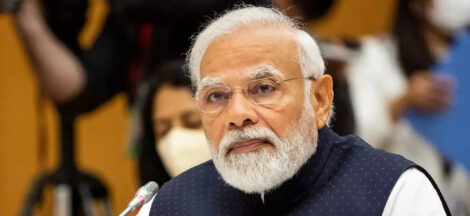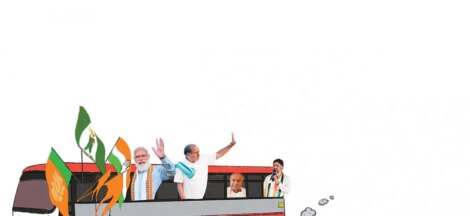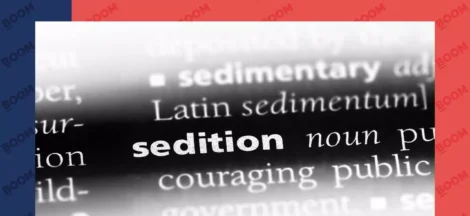By Anil Rajimwale
It is more than a year since the inauguration of the GST on 1 July last year. Much has been made of this step to achieve ‘uniformity’ of tax in the country: ‘one country, one tax’ is touted as a great slogan by the BJP. There is no doubt that the country needs a simplication of the tax structure, which is always desirable. It is also necessary to do away with unnecessary complications, which slow down the growth of economy and the market. But everyone will agree that the way it has been framed and implemented, the GST has proved to be a great disaster, and has adversely affected the normal transactions, trade and commerce throughout the country.
The BJP has tried its best, without success, to underline the ‘great achievements’ of the new tax regime, but has failed to point out anything except making very general and willful statement, which have nothing to do with reality.
Contrary to the BJP claims, the GST has only encouraged malpractices, corruption and black money. It is so complicated that the small and medium sellers and shopkeepers shy away from it in every way. That it is highly complicated is admitted by the BJP, its leaders and periodicals. Its ‘uniformity’ lies in the fact that the shopkeepers all over the country must charge 18 percent to 28 percent on the sales. This is easier said than done. The arithmetic of the processes involved is so difficult that it is better to avoid it altogether. So what the traders do in practice? They just keep a few items on the GST list, show that they are ‘following’ the tax regime and sell the rest as usual without paying the GST. In the process they get a freedom to charge equivalent or more of the GST. If an owner has more than one shop or establishment, he shows all others except one as non-existent to escape the ‘uniform’ tax.
Thus a new division between existence and non-existence of GST has come into being. This leads, naturally to a practice where 1) the government is deprived of genuine taxes, 2) the retailers and the wholesalers charge arbitrarily more in the name of ‘GST’ from the innocent buyers.
Even ordinary vegetables and their sellers have become victims of this notorious practice, resulting in sharp rise in the prices of fruits and vegetables. In fact, the big traders are looting the consumers on a vast scale, a throwback to the early feudal and trading days when capitalism was under-developed and followed typical ‘Marwari’ trading practices. The BJP commercial, trade and industrial practices display this typical imprint of the big trading bourgeoisie. Go to any big and medium traders and you will find them openly flouting the GST regime. These practices have grown and spread after the introduction of the GST.
The introduction of GST has allowed the prices grow steeply, and officially, up to 28 percent, and in fact much more. Remember that the new prices are due to the addition of the GST to the existing prices, and not a readjustment of the prices. This is a certificate to raise prices steeply, a license for open and legal loot.
The BJP-RSS papers admit that many small scale shopkeepers have had to give up their business altogether due to the high complications involved in the GST regime. They also admit that small entrepreneurs and exporters are facing the problems of ‘refund’. This is the amount they spend in advance, which takes time to return. As a result, their money is stuck up and they cannot invest further. GST has made the process far more difficult. For example, the small scale commerce and industry in Tirupur in Tamilnadu face serious difficulties on account of the technical and other problems of GST, and are on the verge of closure constantly.
Why petrol out of GST Regime? This is a crucial question being discussed widely. How does the BJP government justify keeping petrol and diesel out of the GST regime, if the latter is such a wonderful system that ‘unites’ the Indian economy?! Bringing oil under GST will not allow the government to raise its prices beyond 28%! It is as simple as that!
At the same time, the petrol (and diesel etc) prices will fall, rather than rise, if they are brought under the GST regime. How?! Here is the double standard of the government of India. At present, the tax payers pay more than 70 percent of petrol prices as taxes. The centre government charges around 21 rupees per litre as the central excise duty. In addition, the various state governments charge around Rs 15 or so. Plus there are other taxes/ charges. In addition, we pay 115 percent as custom duty on crude oil. The dealer pays to, say the Indian Oil, only 36 rupees per litre, keeping around 3.5 rupees as his profit.
Now if the GST is introduced, the excise duty and the VAT will have to go, bringing the petrol prices down to Rs 30 to 37 or so! This our BJP government won’t allow. Otherwise it will not be able to fulfil its obligations to the big business and the corporates. And then, to keep its profits high as now, it will have to impose various cess and taxes under a wide range of attractive names. This it cannot afford to do at present: ‘at present’ means in ‘the year of the election’. So somehow it must postpone hard decisions. What a mess!
The rising world prices of crude oil provide a golden opportunity for the BJP regime to increase its super profits on behalf of the corporate houses on an unprecedented scale. They have provided an opportunity to raise prices of petrol and diesel arbitrarily on the pretext of increase in world prices. The differences are being garnered by the government and handed over to the giant corporate sector. The government could have introduced GST for petrol etc to prevent further rise in their prices. It won’t do so because then it will not be able to increase their prices. This point is being debated widely. It is strange that the government is not using the controversial GST, which is otherwise being used to raise prices of common commodities but which in certain cases can be used to cap the price rise. (IPA Service)
The post One Year Of GST Is A Saga Of Failure appeared first on Newspack by India Press Agency.


